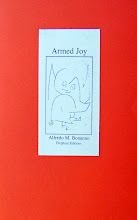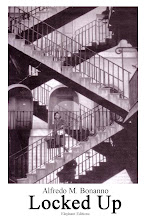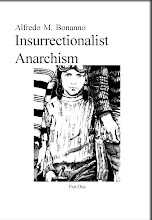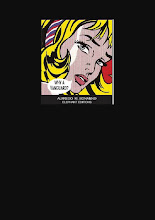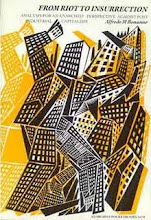The restructuring of capital and the state as it is being carried out at the present time, proposes a redefinition of class relations through new perspectives. Those who hold the technological instrumentsand will do morwe and more in the future, will also have power and be able to manage consensus. They will therefore be the ‘included’ in a reality of dominion. The rest will be ‘exc;uded’, condemned to a ‘passive’ use of technology.The perfectionment of this process passes through the reduction of what the class of excluded possesses: in the first place its own culture.The strata which undergo this pressure mst is that of the young. It is here that the future included and excluded are identified.Certainly the selection is always that of the original conditions of belonging, but new elements are appearing on the horizon. This writing is trying to give a fairly in depth framework to these new elements of class selection.
Class modifications
The risetto of dominion in a society such as ours characterised by violent processes of restructuring passes through a nerw definition of class relations.
tions of the past, new contrasts are superposing themselves. The panorama is breaking up but not for this does it lose its vision of the clash. On the one hand there are the privileged, on the other, those who lack privilege.
A lot could be said about the nature of these privileges. We can no longer speak in terms of lack, so much as in terms of possession of some thing different. That’s it, the privileged of today posses something, or at least the hope of something that the disinherited not only do not possess, but do not even understand, because he does not know it, or is about to lose his knowledge.
A redefinition of the class relations of the past, in my opinion, pases through this process of progressive loss of knowledge, of the padronanza of something that first of all was also indispensable to the exploiters themselves. The lastter are now at the point of reconstructing a different assetto of social conditions (complexive) so different as to no longer require the exploited to have the things that they possessed in the past (labout power, in the first place).That is why the new assetto of class bases itself on innovative processes of technology, far more than in the past, in fact in a way that is radically different.
The new revolutionary motto, ‘We can destroy everything because we can build everything again in that it is we who made everything’, attributed to Durruti, but which however circulates (and circulates) within the traditional working class (which in some ways still persists as a class, in the defence of wages if nothing else); is no longer correct.Today we could substitute it with another of the kind: ‘We must destroy everything because we will never be able to use in a libertarian way what the bosses are building to guarantee their dominion and because it is a question of something that we could never k n po w remaining within a class dimension such as that of today.’
In the past, destruction might have been an ‘accident’, not serious in any case, because from the ruins we could have rebuilt a world of freedom. Today it becomes a necessary road, because only through the destruction of all that the bosses are building, at least starting from the use of post-industrial technologies in poi, wshall we be able to build the free society of tomorrow.
Loss os sense of the old repartitions
The violent and rapid processes of transformation of the social assetto have reduced the importance and the sense of the old class indications.
In the narrow sense, to speak of ‘proletariat’ of ‘lumpenproletariat’ had a very reductive meaning. Thesame can be said for the term ‘working class’, which carries considerable consequences in revolutionary decisions. The same, new perplexities have appeared concerning the consideration and the sense of the definitions that concern the dominant mass: capitalists, politicals,
redditieri, impiegati, managers, quadri, etc.The old concept of ‘bourgeoisie’ is irremdiably frantumata.
To orientate oneself better, I think one needs to have recourse to more concreteness and avoid the substitution of new ideological formulae to the old ones. Often I realise that many comrades carefully avoid pronouncing and referring to concepts such as ‘proletariat’ of ‘bourgeoisie’and, from their embarrassment, I draw the meaning of an awareness of the profound changes we have been living through over the past few years. But the simple messa al bando of w o r d s is not enough, a going into the t h i n g is necessary if one wants to avoid the risk that sooner or later a new word ends up taking the place of the old to allow us to continue undisturbed to ‘dream’ the thing instead of taking possession of it.
Excluded and included
Some time ago I proposed a distinction based on these two concepts. On the one hand the included, closed within their teutonic castle and, only for this, dominators; on the other hand the excluded, destined for a passive use of technology, dispossessed of anything that will never be more than their aim of ‘work’ and, precisely because of this, dominated.
I have explained, and it seems to me in an exhaustive way that this distinction adapts itself sufficiently (still remaining a model of reasoning) to post-industrial reality. Today’s technology is wealth, far beyond simple ‘financial capital’, which will diminish more and more. This technology will not be able to be shared by all. The more will be abilitati only to a passive use and will not understand anything beyond simple pushing of buttons.The fewer (the included) will elaborate research and manage power through possession which is exclusive to them.
To guarantee the net and definitive separation, to avoid the excluded from being to take possession of this technology, a precise wall has to be built, far more efficient than the old walls of the past, the safes, the prisons and the asylums: this will be the wall of the lack of interest. One cannot be interested in something one doesn’t know, one cannot struggle to have something that is ‘other’ from us, that we do not want to possess because we do not know it. And the more we are cut out from technology, the more we shall end up disinteresting ourselves (also, and principally, in the destructive sense), and this process of disinterest will be parallel to the growth in our ignorance, from our progressive distance, the diminution of our intellectual capavcity, knowing, volitive, etc.
The logic of things
The diminution of content which the life of the excluded will become sbmitted is not the consequence of an operation that has been programmed by the included. The process of resystemisation of class is in the logic of things i.e. in the logic of the restructuring of the productive process.
Passing from the industrial structure, based on the great fixed investments and on programming, to the post-industrial structure - a passage realised through the ordinative intervention of the State entering in first person in the economic process - this last structure based on the flexibility of production, flexibility consented by the new technologies, one had to face the problem of reduction of some capacities of the individual and the increase of other capacities.
That has led to profound modifications, realised through the school the large means of information, the spectacle, free time, etc. In this way a n e w m a n is being built, capable of adapting himself, a duttile being, with modest capacities, neither too low or too high, with a tendency to group work, without a wide culture and no career prospects or social climbing. The almost totality of the young are coming to be addressed towards these perspectives. Mediamente they are more sveglie, manually more abile (but not too much), culturally more modest, have a more superficial preparation in the individual cultural sectors, but wider. They know less in depth, but they know more theings.
[...]
skip to main |
skip to sidebar

Some writings of Alfredo Maria Bonanno in English, or almost

Alfredo Bonanno was arrested on October 1st 2009 in Greece, accused of concourse in robbery. With him, anarchist comrade Christos Stratigopoulos.
Here are a few translations and part translations of a small portion of Alfredo's writing. This is a work in progress, many of the translations are as yet incomplete. Open links to find more of Alfredo's work.
Alfredo Bonnano Released
Nov. 22 Alfredo Bonnano was sentenced to 4 years imprisonment (which practically means that with the time served so far and the fact that he is over 70years old HE IS RELEASED
Christos Stratigopoulos (who took responsibility for the action)
was sentenced to 8 years and 9 months with the Greek law will probably be released at the end 2011
BY ANY MEANS NECESSARY
LINKS
click on any of these labels to read text
- "Community" sickness
- 1981 - Editorial
- A Critique of Syndicalist Methods
- A few notes on Sacco and Vanzetti
- A few notes on the revolutionary movement in Italy
- A little man in Singapore
- A million jobs
- A question of class
- Affinity
- After Marx autonomy
- Albania Laboratory of Subversion (Introduction)
- Anarchism and the national liberation struggle
- Anarchists and action
- AND WE WILL ALWAYS BE READY TO STORM THE HEAVENS AGAIN (Against amnesty)
- ANTI-INSTITUTIONAL MOVEMENT
- Are we modern?
- Armed Joy
- ARMED STRUGGLE. SOME REFLECTIONS.
- Autonomous base nuclei
- beyond syndicalism
- Beyond workerism
- But what is the imaginary?
- Class War
- Comiso - Organizational document of the self-managed leagues
- Considerations on illegality
- Dissonances (Introduction)
- Elephant Editions 1986
- Excluded and included
- Farewell to claiming
- Feral Revolution (Introduction)
- FICTITIOUS MOVEMENT AND REAL MOVEMENT
- For an Antiauthoritarian Insurrectionist International - Proposal for a debate
- From riot to insurrection
- From the centre to the periphery
- Good technology
- Guerilla Extraordinary
- Habits and idols
- Hegel
- I know who killed chief superintendent Luigi Calabresi
- Illegality
- Illness and capital
- Informal organisation
- Insurrection
- Internationalism
- Introduction to Sabate
- Introduction to Anarchism and Violence
- Introduction to Bratach Dubh English edition of Malatesta's Fra Contadini
- Introduction to Insurrectionalist Anarchism
- Introduction to Strange Victories
- Introduction to The Conquest of Bread
- Involuntary aspects of voluntary work
- Let's destroy work
- LET'S DESTROY WORK. New introduction
- Let's keep our feet on the ground please
- Lightening Conductors and Stand-ins - more shots of non-news
- Lightning Conductors and Stand-ins
- Lightning Conductors and Stand-ins (cont.)
- Locked up
- Looking forward to self-management
- Loss of language
- More on internationalism
- National Liberation Struggle
- nineteen years on
- No more crises
- Non-news about drugs
- Non-news about racism
- Ode to the Uniform
- On Feminism
- One's life on the line
- Order and chaos
- Otto Ruhle (Introductory Note)
- OUR ROLE IN THE PRESENT CONFLICT
- Palestine mon amour
- Pantagruel anarchist review
- Pinelli
- Prison and Prisoners’ Struggles - Introduction
- Propulsive Utopia
- Quality and the factory
- Restructuring Capital and the new democracy
- Revolution - Violence - Antiauthoritarianism
- REVOLUTIONARY VIOLENCE
- Science and the social revolution
- Self-management
- Severino Di Giovanni in Argentina 1923-1931 by Osvaldo Bayer
- Social banditry
- SOME NOTES -
- Space and Capital
- Stirner
- Stop the City? From information to attack
- Strategy and Methods
- Streamlined production
- The "end" of the crisis
- The aesthetics of anarchism
- The anarchist tension
- The area of autonomy and the anarchist movement in Italy
- The armed wing of science
- The Cruise missile base at Comiso can be prevented
- The ethical bank
- The insurrectional project
- THE LANGUAGE OF TECNICS -
- The logic of insurrection
- The moral split
- THE NECESSARY DESTRUCTION -
- The priority of practice
- The refusal of arms
- The revolutionary project
- The revolutionary struggle
- The significance of an insignificant event
- The struggle for self-managed social space
- The tyranny of weakness
- The whole and the part
- The young in a post industrial society
- Theory and action
- Towards anarchist antimilitarism
- TOWARDS THE GENERALISATION OF ARMED STRUGGLE
- TRANSFORMATION IN THE WORLD OF WORK AND SCHOOL -
- TRUTH -
- Unemployment in Italy - How come everything doesn't explode?
- Untitled
- Violence and non-violence
- What are anarchists
- What can we do with anti-fascism?
- Why a vanguard?
- Why Insurrection
- World domination in a few words



